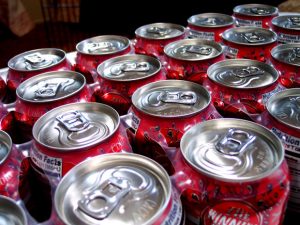Caloric Foods Cause Overeating, Not Tasty Ones
 Foods that are higher in calories can trigger the brain responses associated with eating – regardless of how good they taste, new research suggests.
Foods that are higher in calories can trigger the brain responses associated with eating – regardless of how good they taste, new research suggests.
Researchers at Yale University found that there are essentially two separate brain circuits that are activated when people eat: one responds to flavor and taste, while the other kicks into gear from glucose in the blood. This could mean that overeating has less to do with avoiding the foods you salivate over and more to do with steering clear of high-caloric foods in order to prevent a vicious cycle of craving and bingeing.
Taste vs. calories
Participants in the study were given artificially flavored drinks. Some of the drinks contained zero calories, while others contained maltodextrin – a carbohydrate that can’t be tasted but that still contains calories. Over a period of three weeks and several experiments, researchers found that people preferred the drinks that contained maltodextrin, despite the fact that they couldn’t taste the added calories.
Taking things a step further, the team used MRI scans to monitor brain changes that occured when the patients sipped either the caloric or non-caloric drinks. Results showed that people with higher levels of blood glucose after drinking showed heightened brain responses associated with eating in the hypothalamus and the nucleus accubens areas. Yet the activity in these areas wasn’t related to whether or not people said they liked their drinks.
Conclusions
The researchers conclude that overeating isn’t necessarily based on a preference for calorie-dense foods but rather brain responses that occur due to higher glucose levels. Since, based on metabolism, some people are more sensitive to glucose than others, those who overeat may find it helpful to monitor blood sugar before and after meals.
The study is published Current Biology.
Source: Current Biology
 Eating Disorder Self Test. Take the EAT-26 self test to see if you might have eating disorder symptoms that might require professional evaluation. All answers are confidential.
Eating Disorder Self Test. Take the EAT-26 self test to see if you might have eating disorder symptoms that might require professional evaluation. All answers are confidential.